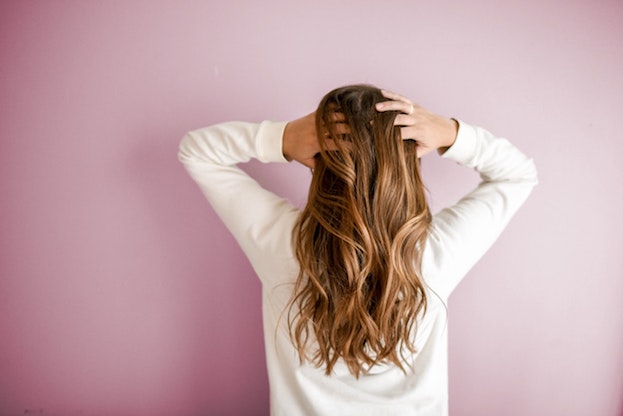
 This is a guest post written by Stacey Chillemi, Founder of The Complete Herbal Guide.
This is a guest post written by Stacey Chillemi, Founder of The Complete Herbal Guide.
In this article, you’ll learn and discover if stress is causing your hair loss and what you can do to regain your hair back. Everyday life sends us surprises and new responsibilities to accomplish. Everyone is always on the go and stress is unavoidable. 90% of all illnesses are caused by stress including hair loss.
Stress is a natural feeling of not being able to cope with specific responsibilities, events that enter our lives and the demands that others put on us. However, stress can become a chronic condition if a person does not take steps to manage it.
Hair loss caused by stress is not necessarily permanent. If you are able to manage your stress by using healthy alternative methods, then there is a good chance your hair might grow back. Here are some natural ways to manage your stress and regrow your hair.
Eating a healthy diet and making sure you acquire the proper vitamins and nutrients is essential for the reduction of stress and hair growth. There are specific vitamins that are very important when it comes to hair growth and the reduction of stress:
Not only do forward bends increase the exhalation, helping to relieve stress, they also turn us inward. Plus, with the arms behind the back, we release shoulder tension.
While there is no one-size fits all solution to reduce hair loss, there are a number of natural remedies that can be used to support health hair growth which you can read more about here.
If you are concerned that stress is causing your hair loss and are looking for personalized Ayurvedia techniques to combat stress, set up a complementary consultation today.

The Holistic HIghway integrates traditional Western medical practices with Ayurveda medicine, creating a focus on prevention through nutrition, diet, and exercise; use of the latest genetic testing and other diagnostic techniques; and prescribed combinations of botanical medicines, supplements, therapeutic diets, detoxification programs, or stress-management techniques.

Integrative Health Expert | Ayurveda Practitioner | Author | Speaker
Kerry is a globally recognized leader in integrative medicine and the science of health known as Ayurveda. She is passionate about raising awareness of the need for a change in contemporary medicine that focuses on patient empowerment and a health-based (rather than disease-based) medical system.
Kerry is connected with The University of Pittsburgh Center for Integrative Medicine and remains a pioneer in the field of integrative medicine where she has developed a personalized system to manage chronic disorders by incorporating fundamental changes in diet, behavior, and stress while focusing on genetics.
This individualized program is so successful that many of her clients have achieved maximum healing and vitality after years of chronic problems!
More to Explore
Contact
Disclaimer
The sole purpose of all the website content is to educate and provide information about Integrative Health, Genetics and Ayurveda.This information is not intended for use in the diagnosis, treatment, cure. or prevention of any disease.
Stay Connected